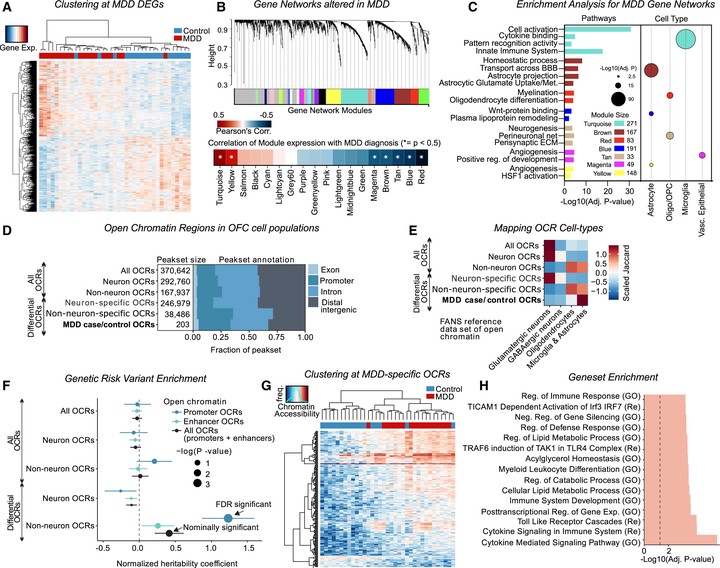Major-depressive-disorder-associated dysregulation of ZBTB7A in orbitofrontal cortex promotes astrocyte-mediated stress susceptibility

Abstract
Heightened activity in the orbitofrontal cortex (OFC), a brain region that contributes to motivation, emotion, and reward-related decision-making, is a key clinical feature of major depressive disorder (MDD). However, the cellular and molecular substrates underlying this dysfunction remain unclear. Here, we performed cell-type-specific profiling of human OFC and unexpectedly mapped MDD-linked epigenomic features (including genetic risk variants) to non-neuronal cells, revealing significant glial dysregulation in this region. Characterization of MDD-specific chromatin loci further identified ZBTB7A—a transcriptional regulator of astrocyte reactivity—as an important mediator of MDD-related alterations. In rodent models, we found that Zbtb7a induction in astrocytes is both necessary and sufficient to drive stress-mediated behavioral deficits, cell-type-specific transcriptional/epigenomic signatures, and aberrant OFC astrocyte-neuronal communication in male mice—an established MDD risk factor. These findings thus highlight essential roles for astrocytes in OFC-mediated stress susceptibility and identify ZBTB7A as a critical and therapeutically relevant regulator of MDD-related OFC dysfunction.